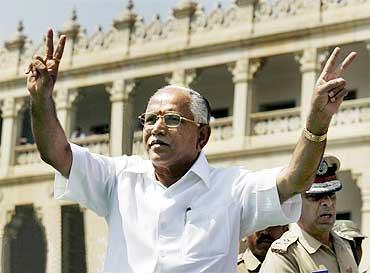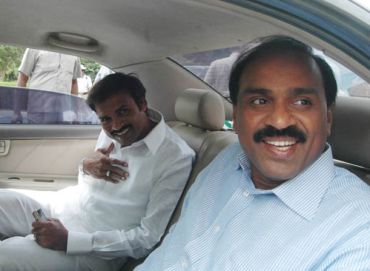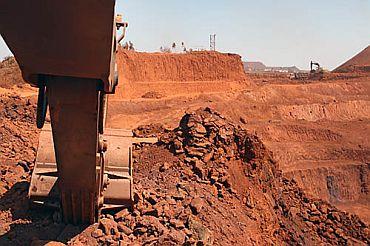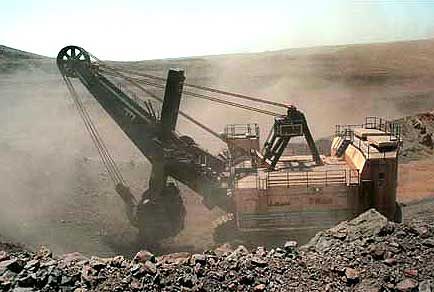 | « Back to article | Print this article |
Yeddyurappa NOT the only corrupt leader in Karnataka
Several developments in the Supreme Court over illegal mining of iron ore in Karnataka indicate that only the first chapter of a long-running story has been brought to a satisfactory end. The whole story offers a valuable insight into practices of governance and ways of doing business in India.
The first chapter began over half a decade ago, with a report by a senior forest department official on illegal mining of iron ore in Karnataka leading to extensive environmental degradation, which was initially buried.
All restraint appears to have been thrown to the winds during the reign of Chief Minister B S Yeddyurappa when the Reddy brothers, ministers in his Bharatiya Janata Party government who had allegedly bankrolled the party's campaign, were given free rein and the illegal mining spilled into adjoining Andhra Pradesh.
Click on NEXT for more...
Janardhan Reddy still under trial
Discussions in the two state assemblies; complaints to the Karnataka Lok Ayukta and the state high court by other mining interests; reports by the Lok Ayukta; and an NGO moving the Supreme Court led eventually to a court-directed stop to iron ore mining in three districts last year.
Now, on the basis of detailed findings by the central empowered committee it appointed, the court has allowed resumption of mining by those who transgressed the least -- and that too only after detailed resettlement and rehabilitation plans have been approved by the environment ministry.
The kingpin, former minister Janardhan Reddy, remains under trial and in custody. The worst depredations by the politically powerful do get stopped -- but it takes time.
Click on NEXT for more...
The Jindals appear to be deeply mired
The chapters that will follow centre around two recommendations by the CEC. One is that the Central Bureau of Investigation should investigate the role of two companies, JSW Steel and Adani Enterprises, which appear to have benefited from the illegal mining.
The Jindals, in particular, appear to be deeply mired. A piece of land acquired near Bangalore for a housing project by the Bangalore Development Authority was denotified and acquired by a Jindal subsidiary.
Records also indicate that a Jindal subsidiary paid crores as donations to a trust in which Yeddyurappa's relations are involved. The Jindals, who do not have captive iron ore mines, are entirely dependent on the merchant sale of iron ore.
Click on NEXT for more...
Yeddyurappa cast caution to the winds
The other key CEC recommendation is even more serious. It says that the CBI could cast the net wider and look into "other similar cases" which would include the tenure of two former chief ministers, H D Kumaraswamy of the Janata Dal - Secular and his predecessor, Dharam Singh of the Congress.
In the case of the former, there have been protests in the state assembly that he sanctioned several mining leases on his last day in office.
If what is suspected is eventually borne out by CBI investigations then it will establish what is widely believed -- that in the country, and in Karnataka in particular, corruption cuts across party lines. Yeddyurappa cast caution to the winds but what he did was not new.
Click on NEXT for more...
TOP photo features of the week
Click on MORE to see another set of PHOTO features...





